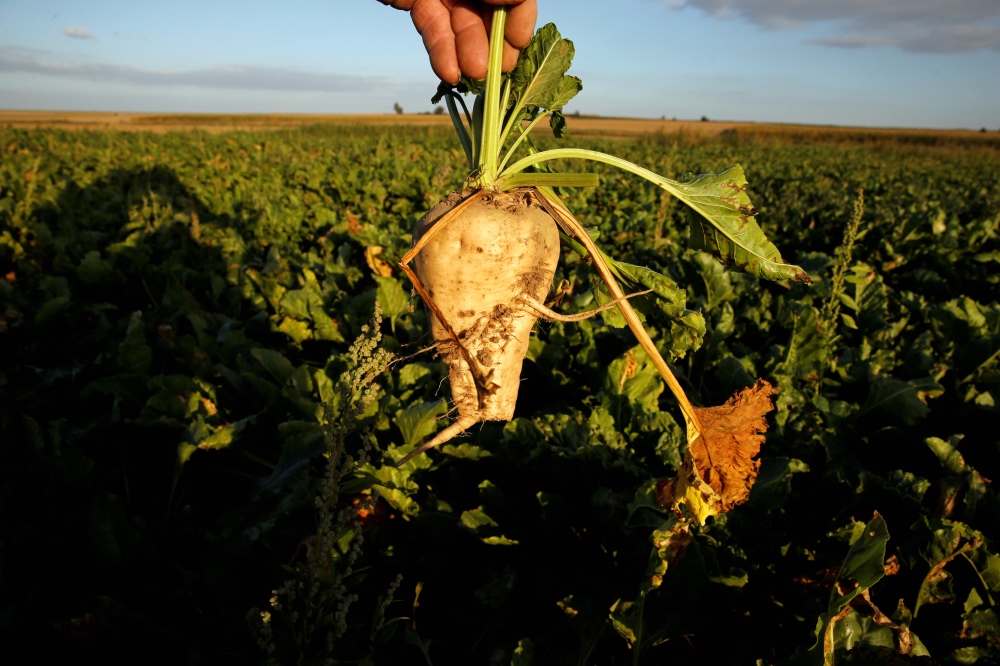Rome, Italy
Thomson Reuters Foundation
Farmers around the world are losing up to 20 per cent of the food they produce every year but action can be taken to reduce this, according to the United Nations on Monday as it quantified such losses for the first time.
A combination of causes, ranging from harvesting and handling practices, to lack of infrastructure and market prices to pests, diseases and climatic conditions, contributed to these losses, said the UN Food and Agriculture Organization.

A French farmer holds a sugar beet from his dry field, as extreme drought hits France, in Blecourt, on 18th September. PICTURE: Reuters/Pascal Rossignol.
This “means that land and water resources have been wasted, pollution created and greenhouse gases (GHGs) emitted to no purpose”, said FAO Director-General Qu Dongyu in a report released ahead of World Food Day on 16th October.
An earlier, widely-cited figure estimated about a third of the world’s food – about 1.3 billion tonnes – was lost or wasted annually but that was a rough figure including estimates for losses along the whole supply chain, according to the FAO.
The FAO said the latest numbers, which showed 14 per cent of losses globally, focused on losses between harvest and markets and showed variations among the world’s regions and commodities.
Central and southern Asia have the highest level of food losses of 20 per cent followed by northern America and Europe at more than 15 per cent. Australia and New Zealand have the lowest at about six per cent.
“This number is important because now we can measure the effects of different policies to reduce losses and we can track it over time to see if we’re improving or not,” said the FAO’s Assistant Director-General Maximo Torero Cullen.
With the right policies the world “can eliminate a significant amount of that 14 per cent food loss” but this had costs and depended on lawmakers, he told the Thomson Reuters Foundation.
“Reductions in the early stages of the food supply chain is most effective in addressing food security or natural resources stress, but reduction of food waste by consumers and retailers is the best to reduce GHG emissions,” he added.
The findings show losses of one in four roots, tubers and oil-bearing crops, such as cassava and potatoes, and more than one in five fruits and vegetables, but less than 10 per cent in cereals and pulses.
Slashing these losses on the farm could increase food availability for small-scale farmers in low-income countries who might also make money selling the surplus, but a glut in produce could depress prices as well as demand, the report warned.
Also some losses were easier to address than others. Making air-conditioned storage available in rural locations without proper roads or electricity would take time but others might only require small adjustments, Torero Cullen said.
For example in Ghana, switching from conventional bags to triple-layer bags with an air-tight seal can protect cassava chips and maize from insects and fungus, according to Washington-based International Food Policy Research Institute.
New technologies could also help. California-based start-up Apeel Sciences produces a plant-based coating that comes in powder form and, when applied with water, can double the shelf life of fruits and vegetables without refrigeration.
It is being tested on mangoes and cassava in Africa.
“Our hope is that with better information and better quality data, we can accelerate this process of reducing food loss,” said Torero Cullen. “This is a big step towards action.”





